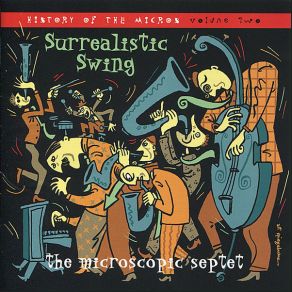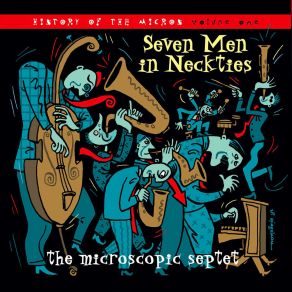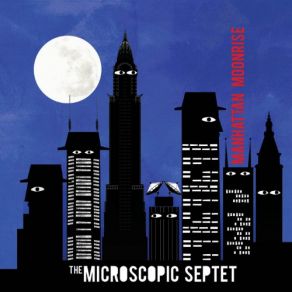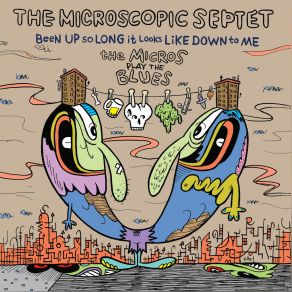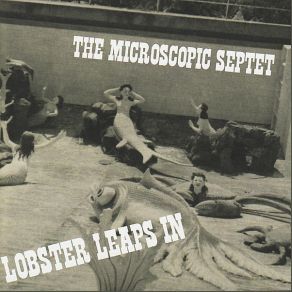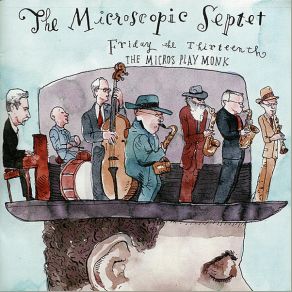The Microscopic Septet
Wikimp3 information about the music of The Microscopic Septet. On our website we have 8 albums of artist The Microscopic Septet. You can find useful information and download songs of this artist. We also know that The Microscopic Septet represents Jazz genres.
Biography
[Edit]The Microscopic Septet were one of the most distinctive jazz ensembles in New York during the '80s and early '90s. Combining a love for the big-band sound with a progressive approach to arrangement and composition, the Micros managed to be nostalgic and futuristic at the same time. Founded by N.Y.U. dropout and soprano saxophonist Philip Johnston, the group that came to be known as New York's most famous unknown band featured pianist Joel Forrester, tenor saxophonist Paul Shapiro, baritone saxophonist Dave Sewelson, bassist/tuba player Dave Hofstra, and drummer Richard Dworkin. For a time, the group's alto sax slot was filled by John Zorn, later replaced by Don Davis. Though Johnston originally planned to add brass to the ensemble, the septet's sound was so refreshing as it was that he left it with four reed and three rhythm players.
From their first regular gigs in 1981, it was clear that the Microscopic Septet sounded and acted differently than most bands in the New York jazz scene. Combining their basic reed and rhythm lineup with eclectic compositions and soloing, the Micros were neither jazz classicists nor strictly avant-garde, but something more unregimented. Indeed, this fluid, cutting-edge nature made them a fixture at the Knitting Factory, one of the city's premiere experimental music venues. Despite glowing reviews from the alternative music press for their witty, surrealistic approach to jazz, the Micros failed to attract much mainstream attention to their work, possibly because it was so difficult to classify. Consequently, over the 12 years the Microscopic Septet played together they recorded only four albums: 1982's Take the Z Train, 1984's Off Beat Glory, 1986's Let's Flip!, and Beauty Based on Science (The Visit) from 1988. From 1988 onward, they were not able to record at all, leaving many of their later pieces undocumented.
The Micros disbanded in 1992, with Johnston moving on to film-scoring work and leading Big Trouble and the Transparent Quartet, among many other gigs. Virtually all of the septet members began leading their own bands, along with collaborating occasionally and performing solo. Meanwhile, Forrester formed People Like Us, a group that also counted Hofstra among its members. The Microscopic Septet's legacy carried into the 21st century, however, and Cuneiform Records capitalized on that enduring popularity by issuing a two-part compilation of the band's early material in 2006. This led to a reunion, as the musicians convened to play several club shows and, soon after, headed straight into the recording studio. Released in 2008, Lobster Leaps In featured performances of the material that the Micros had failed to record before their initial breakup. In 2010 the band was back with its second Cuneiform album, Friday the Thirteenth: The Micros Play Monk, featuring imaginative arrangements of 12 Thelonious Monk tunes, and four years later the Micros returned with their third Cuneiform outing, 2014's Manhattan Moonrise, comprising original material composed and arranged by Forrester or Johnston.
Title: Been Up So Long It Looks Down Up To Me: The Micros Play the Blues
Artist: The Microscopic Septet
Genre: Jazz
Title: Been Up So Long It Looks Like Down To Me: The Micros Play The Blues
Artist: The Microscopic Septet
Genre: Jazz
Title: Manhattan Moonrise (feat. Joel Forrester & Phillip Johnston)
Artist: The Microscopic Septet
Genre: Jazz
